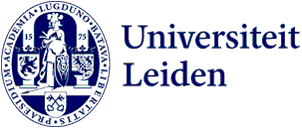
Adopted from China, back there as a journalist: ‘I want to break the stereotypes’
Cindy Huijgen was adopted from China and has wanted to return all her life. This Chinese Studies and Journalism & New Media alumnus is now a correspondent there. ‘My mission is to make nuanced reports about China and break the stereotypes.’
Cindy Huijgen (1991) was adopted as a baby and grew up in Alblasserdam. The first non-white pupil at the primary school there, she was bullied a lot and did not feel particularly at home in the Netherlands, she explains in a Teams interview. She dreamed of going to China her whole life, and first went when she was 12, together with her parents and sister, who was also adopted from China. ‘China was the first time I felt no one was looking at me because of my appearance. Disappearing into the crowd felt so free.’
Learning the language
That was when she knew she wanted to live and work in China when she grew up. ‘I soon realised it’s useful to speak the language.’ When she heard about Chinese Studies at an information day at her secondary school, the decision was soon made. ‘If you want to do something with China, that’s the best option. You’re given so much information about the country and I’m convinced that full-time study is the only way to learn to speak good Chinese.’

She learned to speak the language properly while studying abroad. During her bachelor’s degree, she spent a year studying in Taipei (the Taiwanese capital), and for her master’s, she spent a year in Jinan (a city in eastern China). For her other master’s (Journalism and New Media), she did an internship with the NOS broadcaster’s China correspondent. ‘You are immersed in the language and I think that’s why I ended up where I am now.’ She has worked since 2019 as a freelance correspondent in China, reporting for various Dutch and international media outlets.
Longing for China
She did not move to her country of birth immediately after graduating but had various editorial jobs in the Netherlands, including at the VPRO radio programme Bureau Buitenland. That was a good job and interesting journalistically, and being able to speak Chinese was one of the reasons why she got it. She found herself at a crossroads: build a future in the Netherlands, where she was also in a relationship, or go to China to progress her career and chase her dreams. ‘My desire to return to China was so strong that I decided to take that step.’
Dream job won’t fall into your lap
Huijgen applied for a great many jobs, for both national and international media outlets. In the end, De Telegraaf took her on as a correspondent. ‘That was a big gamble for them because I didn’t have much reporting experience at the time. Being able to speak Chinese clinched it for me, I think. Students should know their dream job won’t just fall into their laps. It’s a process of trial and error. Your CV is not just about success.’
Advantages of looking Chinese
What she was bullied for in the Netherlands – her appearance – is now an advantage in her work. ‘China isn’t keen on journalists, and I’ve realised that looking Chinese makes me less likely to be picked out than my white colleagues. If they interview someone, it’s noticed straight away, whereas I’m just a Chinese person talking to a local.’
There are disadvantages too. The police thought she was a demonstrator during the protests against Covid policy in Shanghai in 2022 and almost arrested her. She got off with a warning by speaking English and acting as though she did not know what was going on.
Human interest stories
As a correspondent, Hujjgen reports on major events, the economy and politics in China. But human interest stories are what she likes best. She observes bigger trends through stories where people share their experiences and challenges. ‘I was in the south of China just recently, for example, to ask the owners of medium-sized companies what they think of the US and how they are dealing with the American import tariffs. That’s how I centre people.’
She wants to show a different side to her country of birth. ‘I want to give China more of a face. There is a stereotypical image of a country with an authoritarian regime where the government knows everything, meaning you are never free and are always being watched. There is a grain of truth in that, but with human interest stories I want to show that the person on the street also has the same challenges and dreams as we do in the Netherlands.’
Book: Dit is ook China: Terug naar mijn geboorteland
Huijgen has written a book Dit is ook China: Terug naar mijn geboorteland. In the book, she explores the challenges of working as a foreign correspondent in China. She also talks about her experiences of being adopted and the hunt for her biological parents in China. The book goes deeper than the image people in the West have of China and shows what it is too: a country with space for love, art and dreams.
